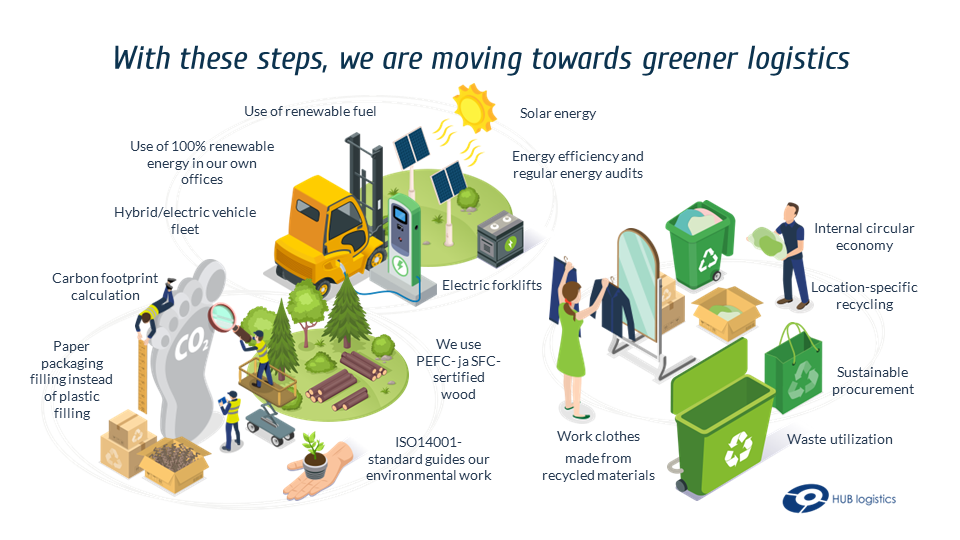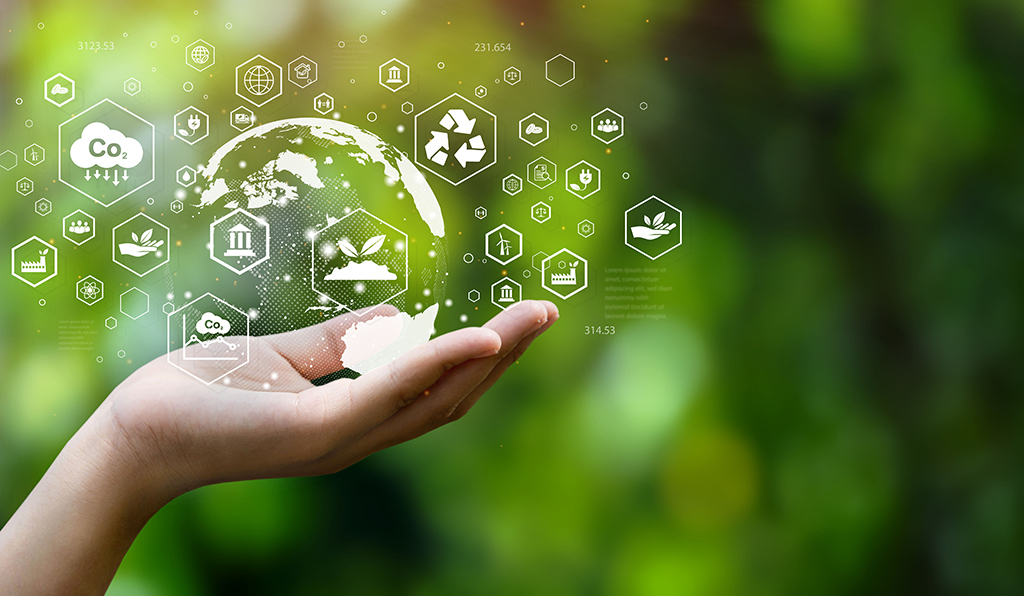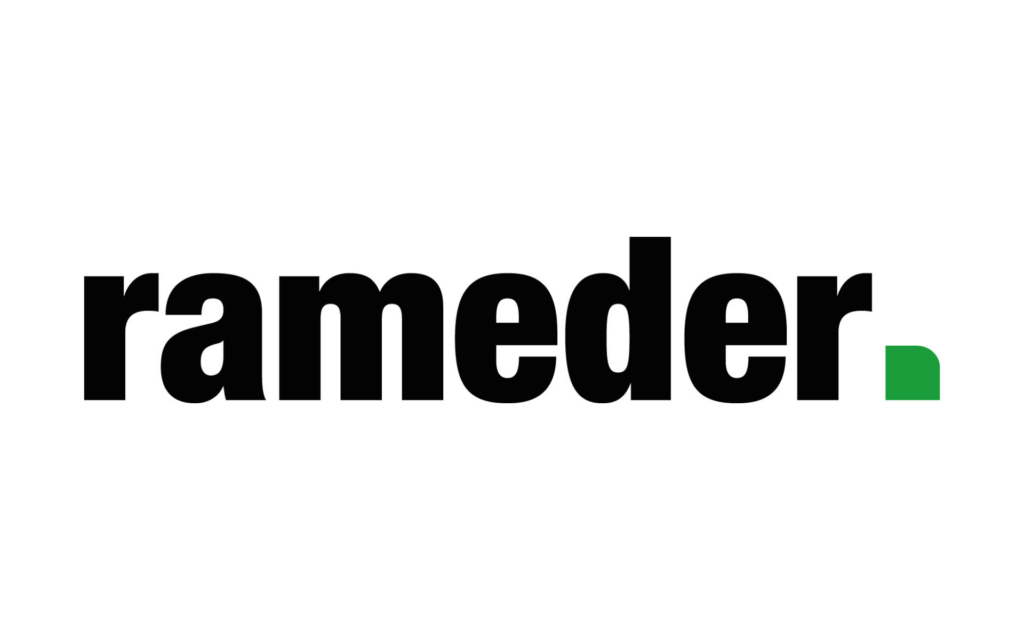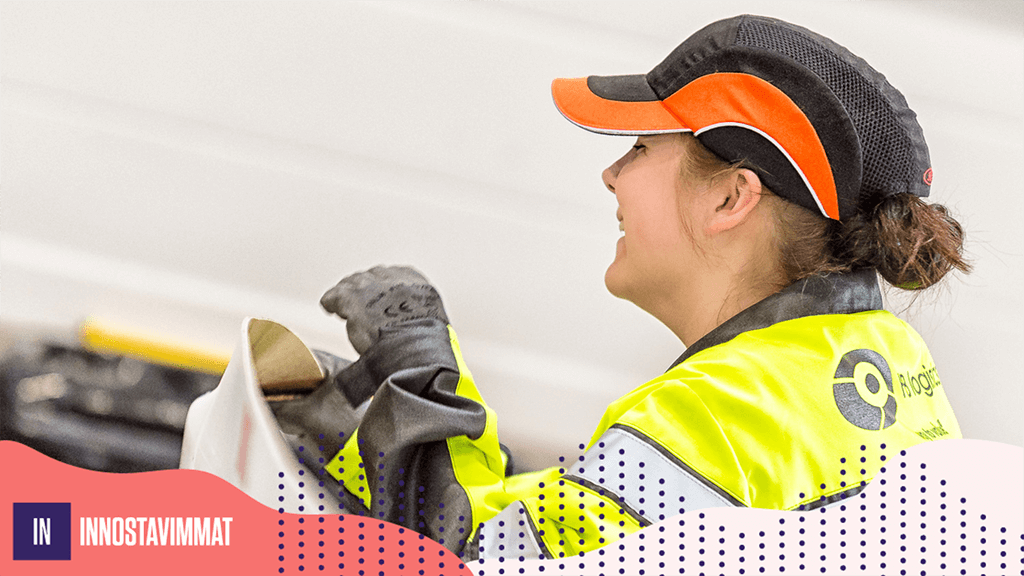Sustainability is an integral part of everyday operations at HUB logistics. Everyday choices ensure that responsibility is not just talk but actions. Whether the actions are small or large, they matter. HUB’s ISO-based certificates attest to both the quality of operations and environmental responsibility.
While environmental care is often the first thing that comes to mind when thinking about sustainability, economic responsibility, good governance, and social responsibility are also essential cornerstones of comprehensive sustainability work and HUB logistics operations. A sustainability program completed in 2023 guides employees in their responsibility efforts. According to Kati Hollmén, Marketing and Communications Manager at HUB logistics, the themes were first introduced internally.
– The program has been reviewed by the executive team, so the top management is committed to responsibility. Then it has been communicated to the staff so that everyone at all levels of the organization has the same understanding. This way, we can also concisely inform customers and stakeholders about it. It’s important that everyone understands the different areas and knows how to act on them.
Not all companies can implement as massive measures as large players, who can change a lot of things at once. Therefore, according to Hollmén, the staggered approach to things must be considered in the long term. Quick wins are not sought, but rather long-term systematic work. As our responsibility report states, we choose responsibility every day. This ensures that responsibility is actions, whether they are small or large. Even small everyday actions are something that even a small company can take on.
Sustainability reports examine the situation from various perspectives
With sustainability reports, the overall situation is monitored from all angles, and the reports guide the development in the field of responsibility. Making a sustainability report is mandatory for companies of public interest employing over 500 people, such as listed companies, banks, and insurance companies, based on EU directives and the Accounting Act. However, companies conducting statutory sustainability reporting can quite freely determine what matters are important to them and how accurately they are reported.

Many companies use the Global Reporting Initiative (GRI) reporting guidelines as the basis for reporting. HUB logistics is also heading in this direction. However, the guidelines are extensive, so creating a report requires a lot of work. Not all companies have sufficient resources for this.
– Guidelines and standards bring comparability to the content of reports, making it easier to assess inter-company responsibility work. In any case, it is good that reports are made, even though their content may be very different, Hollmén reflects.
At HUB, they also monitor how the EU’s Corporate Sustainability Reporting Directive (CSRD) will guide reporting. Its first reporting year is 2025, reporting on data from 2024.
Environmental sustainability begins from within the house
In terms of environmental responsibility, HUB’s goal is to move towards greener logistics. The ISO certification has been guiding environmental work since 2011, and many measures have already been taken towards green logistics. One measure of environmental responsibility is monitoring emissions. With the program, emissions are aimed to be reduced annually.
– We have now implemented CO2 calculators, which allow us to produce reliable figures for stakeholders. We have also commissioned a thesis-based CO2 calculator for transactions. With it, we can provide our customers with more detailed data on emissions separately for product reception, storage, or even during shipment. With a more precise measurement method, we can also more easily identify areas for improvement, says Sampo Arppola, QHSE Manager at HUB logistics.

Economic responsibility creates jobs
Economic responsibility is one of the three cornerstones of responsibility. According to Kati Hollmén, it means good governance that takes into account the expectations of customers, owners, and other stakeholders.
– The culture is formed by being profitable as a whole and being able to both offer and maintain jobs, she says.
At HUB, both long-term and more production-focused short-term goals are set in terms of economic responsibility, which guide operations.
– A practical example of transparency for the staff is the monthly info sessions held for unit managers and other key personnel, where key financial indicators are discussed and the current status and direction are communicated, she explains.
Good governance also stems from adhering to laws and regulations within the company. The guiding principles are up to date and accessible to everyone.
– We want to communicate more transparently to our customers and stakeholders how we operate and how their choices affect matters. We know them and can justify our actions, Hollmén says.
She emphasizes that risk management is also part of good governance.
– We conduct monthly risk analyses for the company’s management and board, examining the situation from various perspectives. For example, the situation in 2022 and its risks led to the need for quick maneuvers in the procurement of sawn timber.
Social responsibility is about workplace safety
According to Sampo Arppola, workplace safety plays a naturally important role in the logistics industry. A safe and healthy work environment, as well as employee well-being, are the foundations of good productivity and quality of operation.

– In this industry, one must be able to work in safe conditions and return home healthy at the end of the day – and later, retire healthy too,” Arppola lists.
Based on employee satisfaction, HUB has been successful in ensuring workplace safety, and the long-term results in accident frequency support this outcome.
Arppola emphasizes that employees must be provided with a safe work environment, and the goal should be to achieve zero accidents annually.
Arppola reminds that when workplace safety is under control and accidents and sick leaves are minimal, it also serves our customers.
– We can offer reliable service in the sense that everything is well taken care of and the service works.
What else does social responsibility entail besides workplace safety?
– It strongly involves developing and improving the skills of the workforce. A good indicator is, for example, how many training days we have. We actively provide training through staff card courses and supervisor training, Hollmén explains.
She mentions that for a few years, HUB has been conducting employee surveys, from which a PeoplePower index is compiled to represent the whole. The results are thoroughly analyzed, and development measures are taken at different locations based on identified issues. This way, the work well-being of the staff can be improved year after year.
– There are many dimensions to address. It can involve boosting team spirit, improving ergonomics, enhancing workspaces, or developing work tools.
– So, even in this aspect, activities are developed through actions to operate better and ensure the well-being of the staff. This requires setting long-term plans, for example, for a five-year period, and determining what it takes to achieve the goals. It all requires active communication so that everyone knows what we are aiming for and how we intend to achieve it.
– We have done a lot of things already, but we haven’t always realized that they are actually part of responsibility. In our strategy extending to 2025, we have defined that responsibility is an essential part of it. Strategy and responsibility go hand in hand and support each other. We want to take that forward, says Kati Hollmén.
>>Read more about our sustainability work
>>Read our latest sustainability report (in Finnish)



